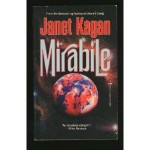We know creativity is important, but how do we teach it? Po Bronson and Ashley Merryman have a fascinating article in Newsweek that is a superb advertisement for Montessori education. It posits, with extensive citation to back it up, that the increasing use of standardized curricula and testing is leading to decreased creativity in the U.S..
Of course you don’t teach creativity. Indeed, the arts, which are typically thought of as the first avenue for developing creativity, have no monopoly on the ability.
The age-old belief that the arts have a special claim to creativity is unfounded. When scholars gave creativity tasks to both engineering majors and music majors, their scores laid down on an identical spectrum, with the same high averages and standard deviations. Inside their brains, the same thing was happening—ideas were being generated and evaluated on the fly. – Bronson and Merryman, 2010.
Creativity can be developed with practice. When we’re being creative the brain starts by shifting through a whole bunch of different, vaguely relevant ideas at the same time. At some point some these ideas click together as the brain quickly recognizes some pattern and it focuses, focuses, focuses, encapsulating the pattern into some new insights and evaluating its possible effectiveness. It’s this mental shifting of gears from vague to precise, and the ability to focus attention on the specific problem that we improve on with practice. How:
… alternate maximum divergent thinking with bouts of intense convergent thinking, through several stages. Real improvement doesn’t happen in a weekend workshop. But when applied to the everyday process of work or school, brain function improves. – Bronson and Merryman, 2010.
They outline the steps to a project that practices creative thinking to solve solve a problem:
- Start with fact-finding – what do we need to know to solve the problem.
- Next scope out the possible problems.
- Generate ideas.
- Identify the best ideas.
Here the steps alternate from divergent thinking to convergent, general idea collection to focused thinking. They generate facts and ideas, then evaluate them rigorously. Creativity requires both types of thinking because either one is ineffective on its own.
In Montessori
The foundation for fostering this type of creativity in the classroom lies in developing a safe community. Clear rules reduce anxiety but leave room for exploration and curiosity. In the language of Montessori, this translates to developing a prepared environment and allowing freedom within boundaries.
Bronson and Merryman say this about the teacher:
When creative children have a supportive teacher—someone tolerant of unconventional answers, occasional disruptions, or detours of curiosity—they tend to excel. – Bronson and Merryman, 2010.
And they note this about the students:
They’re quitting because they’re discouraged and bored, not because they’re dark, depressed, anxious, or neurotic. It’s a myth that creative people have these traits. (Those traits actually shut down creativity; they make people less open to experience and less interested in novelty.) Rather, creative people, for the most part, exhibit active moods and positive affect. They’re not particularly happy—contentment is a kind of complacency creative people rarely have. But they’re engaged, motivated, and open to the world. – Bronson and Merryman, 2010.
I really like how the authors integrate the cognitive and neuroscience research into the article, to the great benefit of the more detail oriented among us. I always find remarkable how all this new science just continues to demonstrate Maria Montessori’s perceptiveness. The Montessori method is fundamentally designed to foster creativity.
This is a clear argument for the Montessori Method. I’ll certainly use this for my parent presentations and recruiting. As a teacher, however, it doesn’t hurt to be reminded of the importance of creating space for creativity. I like the way Bronson and Merryman put it:
In the space between anxiety and boredom was where creativity flourished. – Bronson and Merryman, 2010.








